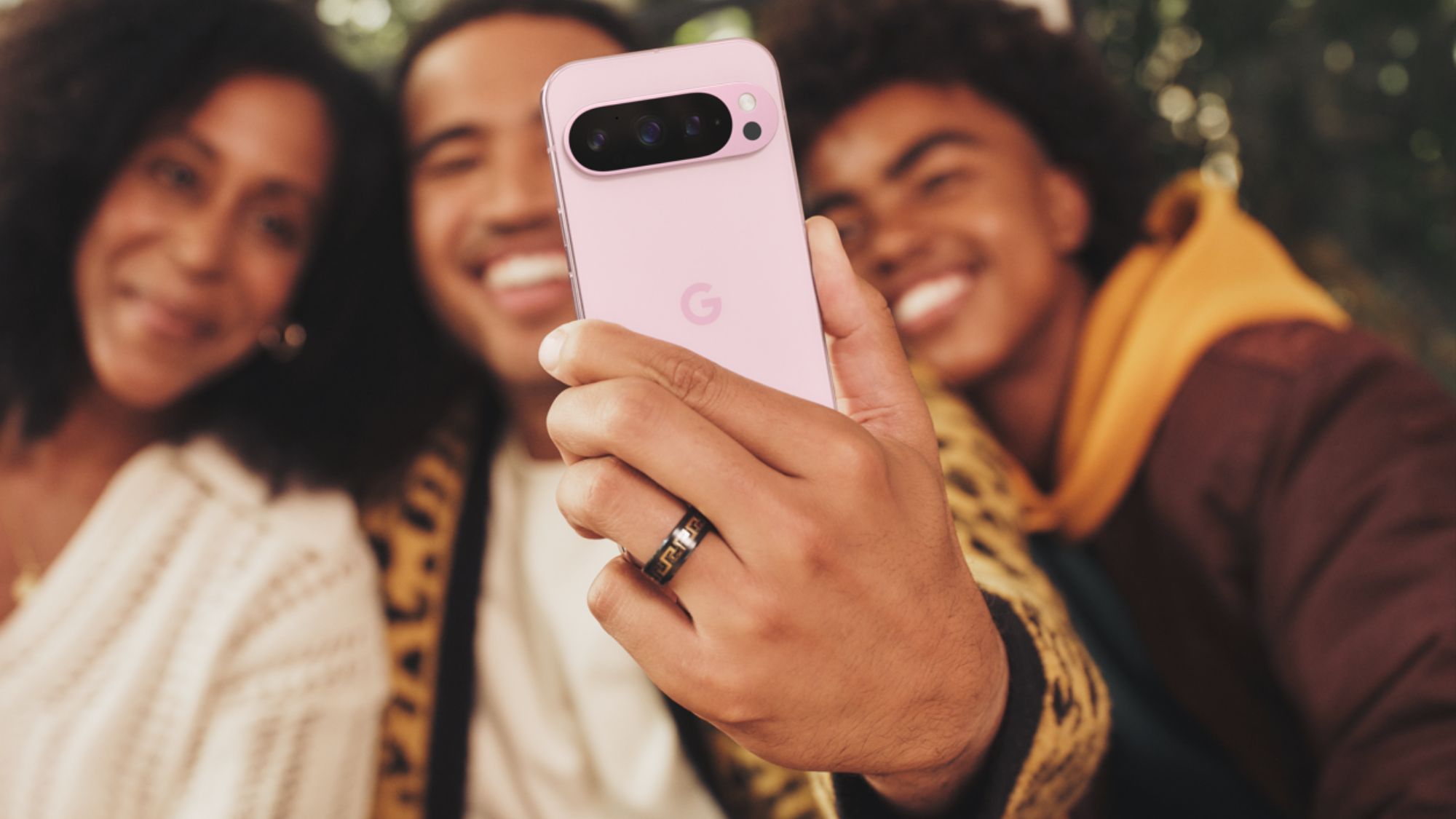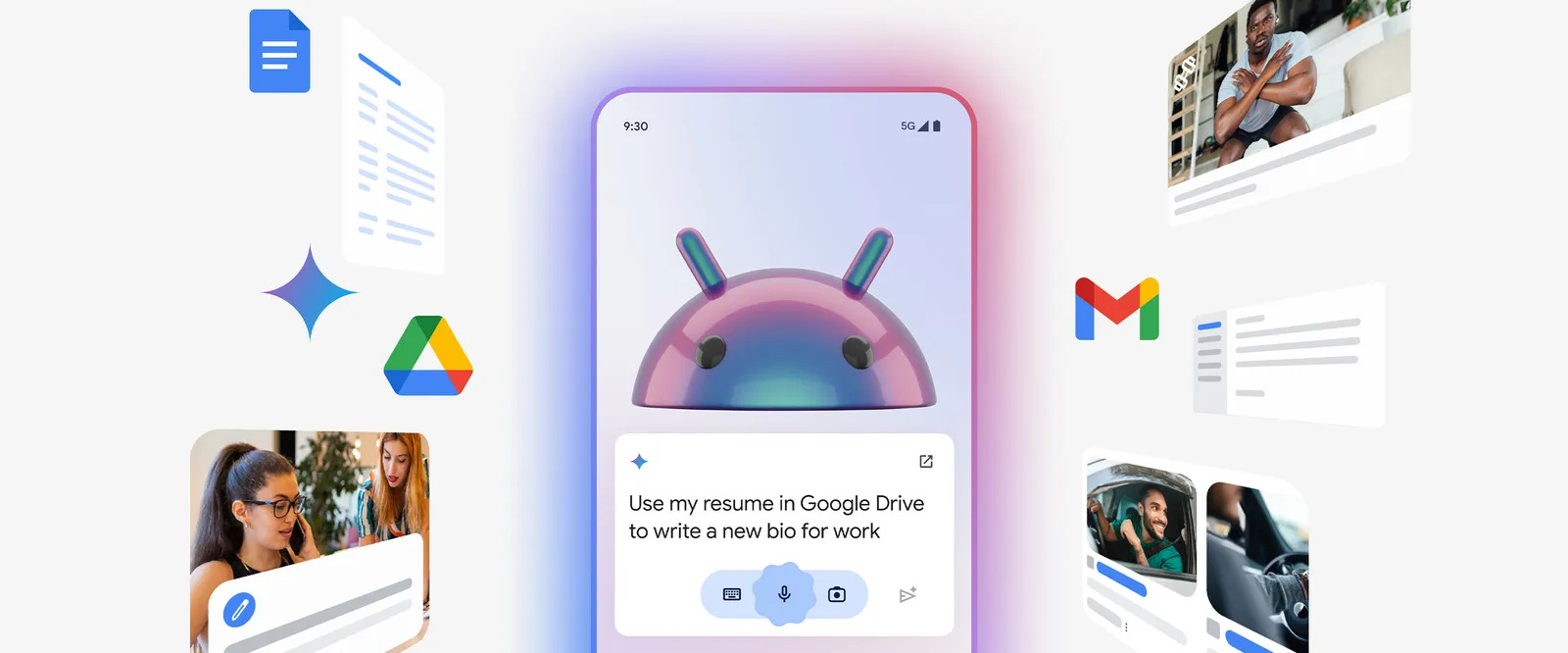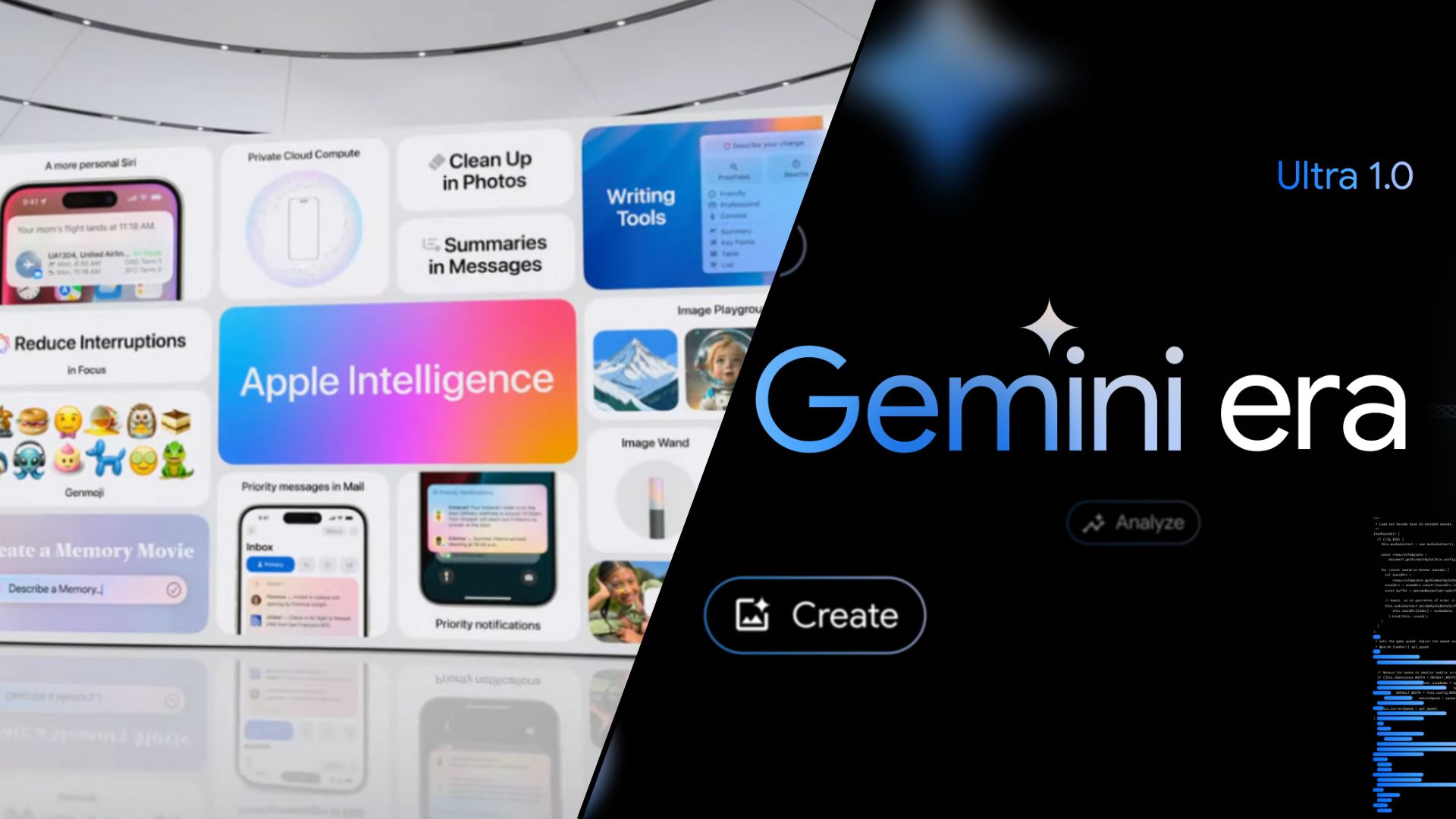Will Google's new Gemini AI features get people to switch to a Pixel phone?
Google Gemini got an upgrade, but is it enough to boost Pixel sales?

On Tuesday, Google announced a host of new Gemini AI features at its Made by Google event, which also showcased a new line-up of Pixel phones. Google highlighted a leap forward in on-device AI features, but is it enough to get people to switch to Pixel?
The on-device AI competition is heating up, and the rivalry between Google Gemini and Apple Intelligence is already front and center. Google is coming out swinging and launching its AI features faster, but it will take some serious innovation to win over long-time Apple users and even people currently using a non-Pixel Android phone.
Here's a look at the new Gemini features Google announced this week, how they compare to competition from Apple, and how they might convince some people to switch to a Pixel.
Gemini on Pixel: The good, the bad, and the boring

On August 13, Google hosted its annual Made by Google event, showcasing a new line-up of Pixel phones and some major updates to its Gemini AI platform. The highlights include Gemini Live, new Magic Editor features, a Microsoft Recall-like screenshot tool, AI-generated phone call summaries, on-screen awareness, and the Pixel Studio image generator.
Gemini Live is Google's revamped AI assistant, which will replace Google Assistant. Right now, it's exclusive to Gemini Advanced subscribers, who pay $20 a month for the Google One AI Premium plan that includes 2TB of Drive storage. Google clearly wants people to try out Gemini Live, though — it's including a free year of Google One AI Premium ($240 value) with the Pixel 9 Pro and Pixel 9 Pro XL.
The main difference between Gemini Live and Google Assistant is that Gemini Live can have natural, spoken conversations with you (rather than requiring you to type out questions).
Pixel Screenshots is another eye-catching AI feature from this year's Made by Google event. This is Google's take on Microsoft Recall, which faced a deluge of skepticism when announced earlier this year. Google's approach aims to dodge privacy concerns by making its version manual.
Sign up to receive The Snapshot, a free special dispatch from Laptop Mag, in your inbox.
Whenever you manually take a screenshot, Gemini will identify contextual info in it, such as the date on a reservation or a typed-out reminder. Then, you can use the Pixel Screenshots app to easily find and organize screenshots using Gemini or ask Gemini to recall info from a screenshot. This feature could be useful, but some users may not like an AI scanning all of their screenshots. At least Gemini only looks at screenshots you've manually taken rather than automatically taking screenshots like Microsoft Recall.
The third noteworthy new Gemini feature is Call Notes, which generates summaries of phone calls lasting longer than 30 seconds if you trigger the feature. If you often have long phone calls for work, this feature could be useful. If you activate it, the other party on the call will receive an audible notification that the call is being recorded. Despite these precauations, for some people, it may feel a bit invasive. The recording and transcription are all happening on the device, according to Google, so this feature seems private for those who want to use it.
Notably, most of the new features, including Pixel Screenshots and the new Magic Editor features, are exclusively available on Pixel phones right now. This appears to be Google's policy on its on-device AI updates. If you want the latest Gemini features, you'll need a Pixel phone.
How does Gemini on Pixel compare to Apple Intelligence on iPhone?

Google's slew of new AI features comes just a couple of months after Apple unveiled Apple Intelligence, a similar set of on-device AI features for the iPhone. Clearly, AI is becoming a major part of the competition between Apple and Android. Are Google's AI features enough to give it an edge over its biggest rival?
That depends. How well the AI features on both platforms work in real life and everyday use is critical. It's one thing to show off a potentially enticing AI feature in a demo, but if the real thing is buggy or broken, it will make little to no difference in which phone people choose to buy. That goes for both Apple and Google.
While it's too soon to say how well Apple Intelligence or Google's new Gemini features work, there are a few reasons to bet on Google.
First, Google currently has the lead in the on-device AI race by launching its features sooner. Apple Intelligence is on track for a prolonged rollout that will go into 2025, long after the initial release of iOS 18 (which Apple Intelligence is supposed to be part of). In contrast, Google's new Gemini features are launching with its new Pixel phones, which are available for pre-order and shipping later this month.
There are some similarities looking at Gemini vs. Apple Intelligence, but Gemini has much more extensive AI photo editing features. Google's Magic Editor has long led the way in AI-powered photo editing, so it will be tough for Apple to eclipse it. After this week's new Gemini features, Magic Editor will soon be able to edit people into photos and "reimagine" photos with more eye-catching yet realistic backgrounds.
Beyond that, it's a toss-up depending on which company does on-device AI better. Both have on-screen awareness, an image generator, text generation, and upgraded natural language processing.
Is Gemini worth switching to Pixel?

Considering the updates Google announced this week and how Gemini compares to Apple Intelligence, is the new-and-improved Gemini enough to entice people to switch to a Pixel phone?
It's possible, but likely not for a large segment of users. If you frequently use AI photo editing tools, a Pixel phone is the way to go since Google's Magic Editor currently has the most to offer in that niche. Other Pixel-exclusive features, like Pixel Screenshots and Call Notes, will likely be helpful to certain people but aren't groundbreaking enough (at least, not on their own) to justify switching to a Pixel.
The strongest case for switching to a Pixel right now is future-focused. It looks like Google will be launching all of its latest Gemini features on Pixel phones first.
Google is currently leading the charge if you want to be at the forefront of on-device AI innovation. Apple is trying to catch up, but its slow roll-out of Apple Intelligence leaves it far behind Google in 2024.
More from Laptop Mag
- Google Pixel 9 Pro vs. Pixel 8 Pro: Is it worth the upgrade?
- Where to preorder the Google Pixel 9, Pixel 9 Pro, Pixel 9 Pro XL, and Pixel 9 Pro Fold: Best deals and free offers so far
- Google Pixel 9 vs. iPhone 16: Which is better in 2024?

Stevie Bonifield is a freelance tech journalist who has written for PC Gamer, Tom's Guide, and Laptop Mag on everything from gaming to smartwatches. Outside of writing, Stevie loves indie games, TTRPGs, and building way too many custom keyboards.
